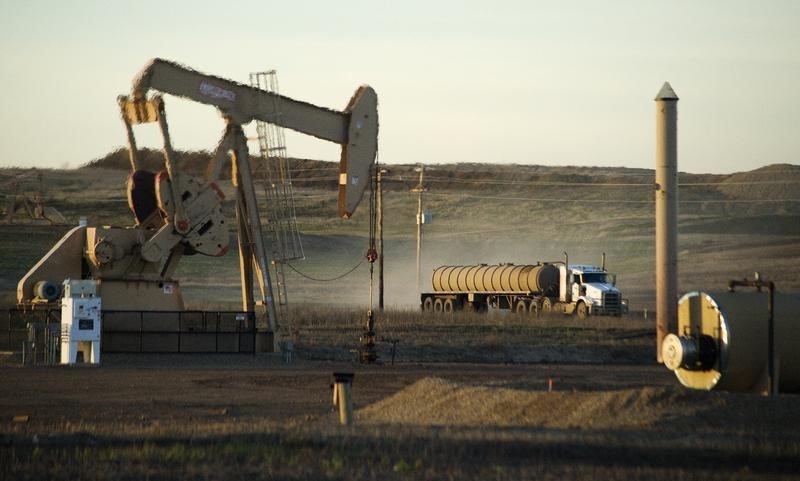* U.S. gasoline demand dips for the first time in 14 months
* Strong gasoline demand has helped support struggling crude
* Traders forced to store unwanted gasoline on tankers in
Asia
* Storage glut could pull prices back to recent lows -BNP
Paribas
* Production freeze would do little to address crude glut
-FGE
(Adds comment, detail, updates prices)
By Henning Gloystein
SINGAPORE, April 5 (Reuters) - Oil prices on Tuesday
extended losses from the previous two sessions on weakening
demand for gasoline and on concerns the global crude glut could
persist for some time.
Front month U.S. West Texas Intermediate (WTI) crude futures
CLc1 were trading at $35.54 per barrel at 0454 GMT, down 16
cents from their last settlement.
International Brent futures LCOc1 were down 11 cents at
$37.58 a barrel.
Both WTI and Brent extended their declines for a third
session as investors doubted that producers will be able to rein
in global overproduction that has seen crude prices tumble by as
much as 70 percent since mid-2014.
Growth in gasoline use has been one of the strongest pillars
supporting demand across the fuel complex in both North America
and Asia, largely credited for preventing oil prices from
tumbling even further than they have.
Tuesday's declines came after U.S. gasoline demand during
January fell for the first time in 14 months, while overall U.S.
oil demand fell 1 percent that month from a year ago.
Meanwhile in Asia, traders have stored excess gasoline on
tankers as onshore storage facilities in Singapore and Malaysia
are filled to the rims, although some traders said this was only
a temporary measure rather than a sign of a longer term gasoline
glut for the region.
Analysts say crude prices could fall lower again soon,
though, as the emerging gasoline glut potentially adds to a
global overhang in crude output that sees more than 1 million
barrels of oil produced in excess of demand every day.
"Global oil balances will witness sizeable implied inventory
builds in H1'16, suggesting that the price of oil can easily
revisit the lows seen earlier this year," French bank BNP
Paribas said in a note to clients.
To address the crude overhang, major producers like Saudi
Arabia and Russia have proposed a freeze in output at January
levels, when both pumped at or near record levels, a move
analysts have dismissed as ineffective.
"Only a feeble mind sees a freeze in production as good
news. It is the worst news as it guarantees over-production and
rising inventories," consultancy FGE said on Tuesday in its
monthly oil report. Crude prices could see a downward correction
to between $25 and $35 per barrel in the second quarter, FGE
said.
Traders have increased their bets on more price falls to
come, with the U.S.-based Schork Report saying that this week's
trade data release showed "the first time speculative shorts
rose, and net speculative longs fell, since the start of the
(most recent price) rally in early February."
